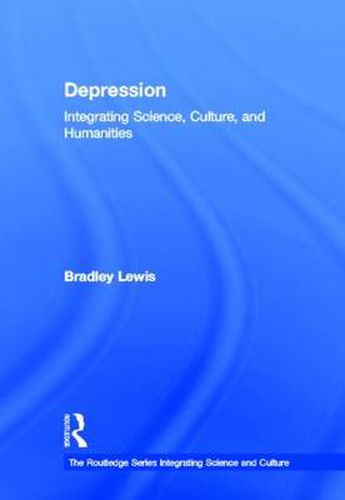Readings Newsletter
Become a Readings Member to make your shopping experience even easier.
Sign in or sign up for free!
You’re not far away from qualifying for FREE standard shipping within Australia
You’ve qualified for FREE standard shipping within Australia
The cart is loading…






We live in an era of depression, a condition that causes extensive suffering for individuals and families and saps our collective productivity. Yet there remains considerable confusion about how to understand depression. Depression: Integrating Science, Culture, and Humanities looks at the varied and multiple models through which depression is understood. Highlighting how depression is increasingly seen through models of biomedicine–and through biomedical catch-alls such as broken brains and chemical imbalances –psychiatrist and cultural studies scholar Bradley Lewis shows how depression is also understood through a variety of other contemporary models. Furthermore, Lewis explores the different ways that depression has been categorized, described, and experienced across history and across cultures.
$9.00 standard shipping within Australia
FREE standard shipping within Australia for orders over $100.00
Express & International shipping calculated at checkout
Stock availability can be subject to change without notice. We recommend calling the shop or contacting our online team to check availability of low stock items. Please see our Shopping Online page for more details.
We live in an era of depression, a condition that causes extensive suffering for individuals and families and saps our collective productivity. Yet there remains considerable confusion about how to understand depression. Depression: Integrating Science, Culture, and Humanities looks at the varied and multiple models through which depression is understood. Highlighting how depression is increasingly seen through models of biomedicine–and through biomedical catch-alls such as broken brains and chemical imbalances –psychiatrist and cultural studies scholar Bradley Lewis shows how depression is also understood through a variety of other contemporary models. Furthermore, Lewis explores the different ways that depression has been categorized, described, and experienced across history and across cultures.